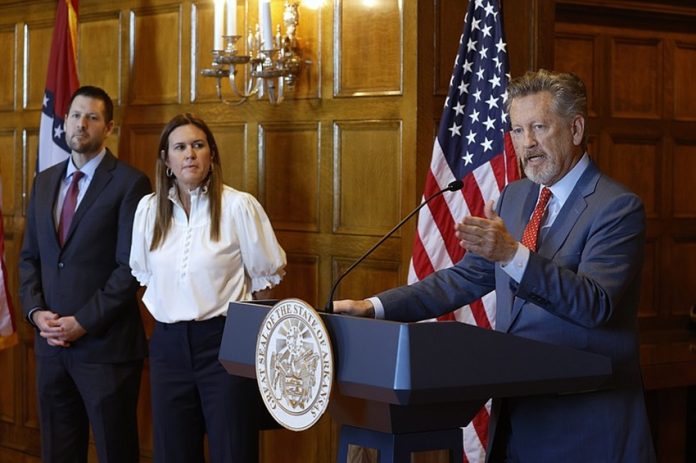Fort Smith, ARK – The U.S. Department of Commerce’s National Telecommunications and Information Administration (NTIA) has approved a major funding award for Arkansas, granting the state more than $10.1 million to support digital equity initiatives. This investment is part of the broader Internet for All initiative, a key component of the Biden administration’s effort to ensure all Americans have access to the digital tools and skills necessary for success in the modern economy.
Governor Sarah Sanders expressed enthusiasm about the funding, emphasizing that while expanding broadband infrastructure is crucial, it’s equally important to ensure that residents have the skills to fully benefit from these new technologies. “Growing our broadband infrastructure is a big part of connecting our state, but if Arkansans don’t have the skills to use this new technology, we won’t fully realize its benefit,” Governor Sanders said in a statement. “This funding will be critical to closing the digital divide and putting communities on the path to success.”
The state’s Digital Skills and Opportunity Plan, funded by the NTIA grant, outlines several key initiatives aimed at improving digital literacy, increasing access to affordable technology, and expanding broadband access across Arkansas. The primary goals of the plan include:
- Digital Skills Training Programs: These programs will be designed to teach Arkansans essential digital skills, preparing them for today’s workforce. The training will focus on basic to advanced computer literacy, helping individuals gain the confidence and competence needed to thrive in the digital age.
- Reduced-Cost Devices for Training Participants: Individuals who complete digital skills training will be eligible to receive devices at a reduced cost. This initiative is intended to ensure that all residents, regardless of income, have access to the tools they need to participate in the digital economy.
- Community Wi-Fi Mini-Grants: The funding will support the establishment of mini-grants for local communities to expand Wi-Fi access, particularly in underserved areas. This will help ensure that rural and economically disadvantaged communities are not left behind in the digital transformation.
Hugh McDonald, Secretary of Commerce for the state of Arkansas, emphasized the importance of digital skills in preparing the workforce for the future. “Having digital skills is a critical element of succeeding in the twenty-first-century workforce, and Arkansas is committed to preparing its citizens for success,” McDonald said. “The Arkansas State Broadband Office will play a vital role in helping ensure that Arkansans have the skills and training they need to take part in the workforce of today and tomorrow.”
In addition to the digital skills programs and device initiatives, the funding will also support efforts to expand broadband access to key community institutions. The Arkansas plan includes extending high-speed internet to community centers, veterans’ organizations, and multi-dwelling units, ensuring that even the most remote or underserved areas benefit from improved connectivity.
State Broadband Director Glen Howie remarked on the broader economic and social impacts of these initiatives. “If we think about economic development throughout the state, small business growth in our communities, and improved quality of life for every Arkansas family, having proper digital skills is a key component to unlocking that future,” Howie said. “We are proud to take on that mission.”
With this significant investment, Arkansas is positioning itself as a leader in the effort to bridge the digital divide. The initiatives outlined in the state’s Digital Skills and Opportunity Plan are expected to make a substantial impact on the lives of residents, helping them access new opportunities for education, employment, and economic growth in an increasingly digital world.

